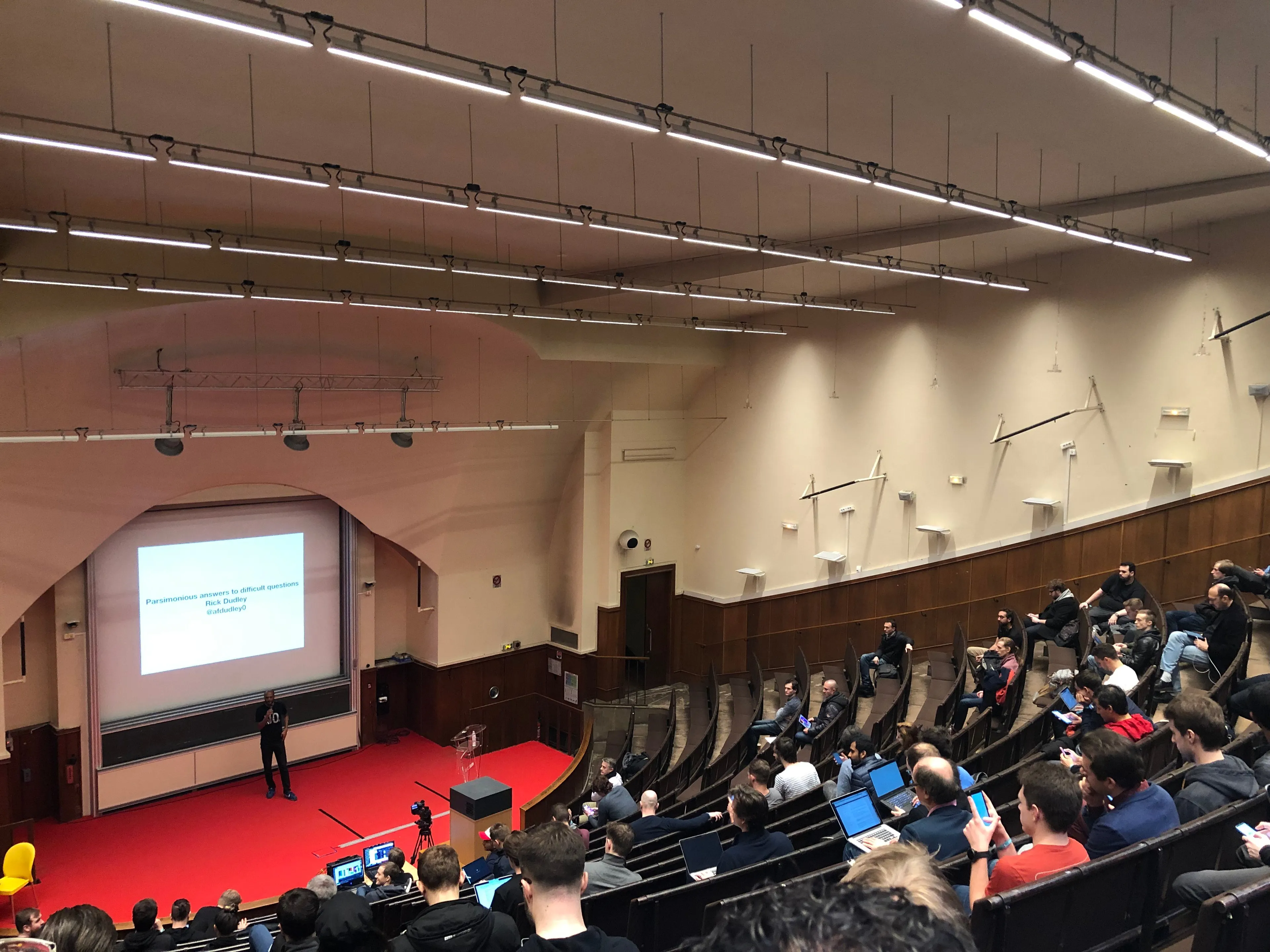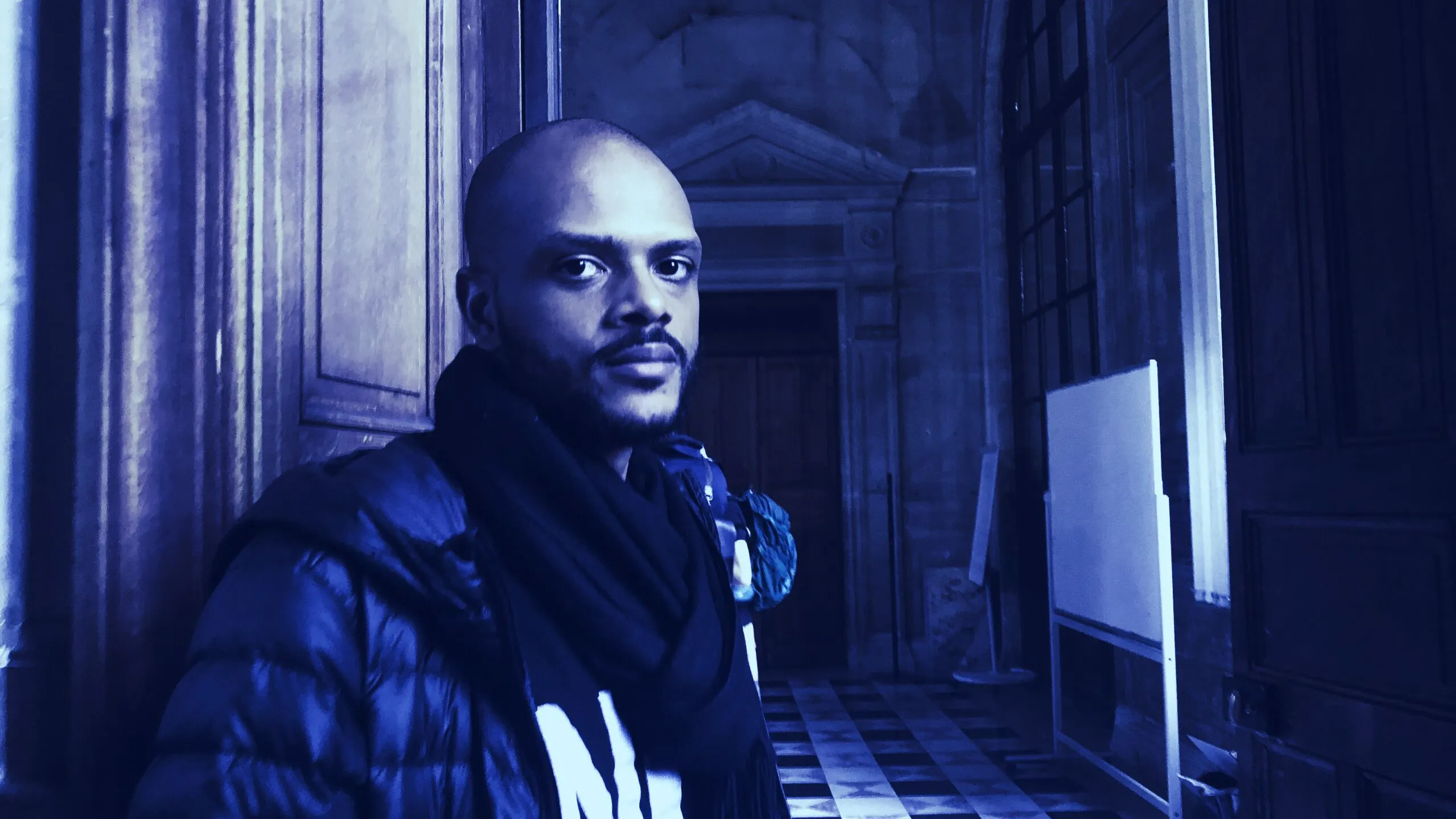Rick Dudley doesn’t put himself about much. Perhaps he doesn’t need to. A leading blockchain architect, Dudley is also the founder of NYC-based Vulcanize, an under-the-radar consultancy that’s working for both the Ethereum Foundation—on hotly anticipated tools for a block explorer—AND for private enterprise.
Dudley may not choose the limelight, but he has emerged as something of a thought-leader in the topsy-turvy world of Ethereum—the second most valuable blockchain. His opinions are sought as he has both a deep understanding of Ethereum but is blunt about its shortcomings and knowledgeable about the business-focussed landscape beyond. In the recent row about contentious upgrade ProgPow for example, Dudley suggested appointing whips. Historically, these “enforcers” have been employed by political parties to oversee voting and ensure it's along party lines.
“He's a breath of fresh air,” says Ethereum core developer, Lane Rettig. “He calls things like they are and sort of serves as our collective conscience.”
We caught up with Dudley earlier this month, at the Ethereum Community Conference in Paris, where he was presenting “Parsimonious answers to difficult questions.” He gave us the inside track on what he’s working on and Ethereum too.
First, did he really believe what he said in his presentation, that the specifications for the platform’s much-anticipated upgrade, dubbed Ethereum 2.0, were “a bunch of napkins,” implying that it’s behind schedule?
That is a little strong, Dudley admits. The question was about bandwidth, which hasn’t been determined yet, he adds. But there’s no denying that, having experience of working in Ethereum development in the past, Dudley finds the pace of work on the platform frustrating. “They could have a much more aggressive road map and they chose not to do that,” he says, adding that the responsibility lies with cofounder, Vitalik Buterin.
Dudley, it transpires, is a fan of rigorous academic research followed by an aggressive approach to production.
“Businesses have to have some trade secrets”
Dudley set up Vulcanize in 2016. Prior to that, he did a stint developing at Ethereum and worked as a blockchain architect at: Omega One, which is a secure crypto asset trading platform; OmiseGO, an Ethereum-based platform that’s decentralizing payment networks, and blockchain startup incubator, ConsenSys, (disclosure: ConsenSys funds Decrypt), as well as several other notable blockchain startups.
The Vulcanize team is working on both open source and private projects, but is mainly focused on the former. As well as Ethereum, their clients include cryptocurrency network, MakerDAO and wireline.io, which is building protocols for the development of interoperable services such as micropayments.
The other, private, side of the business is geared toward products “for people in the exchange space,” and is related to identity services and trade data in the context of decentralized exchanges.
“We’re able to get data to you extremely quickly, faster than block times,” he says. “There’s nothing to open source in that software. Businesses have to have some trade secrets.” Indeed, Dudley’s work on so-called “permissioned” or private blockchains has led to predictions that he will white-label next-generation Wall St. systems infrastructure.
So the release of the open source code for VulcanizeDB, an indexing and caching service for Ethereum data, is eagerly awaited. It’s expected within the next month or two, and is tied to MakerDAO’s hotly-anticipated, multi-collateral DAI release.
Dudley says VulcanizeDB (which is both a federated—interoperable—and standalone solution) forms the glue for all the work the company is undertaking; it’s integral to the decentralized block explorer tools that will work across virtually all blockchains being developed for Ethereum; it will enable the monetization of blockchain data and more besides.
World Computer chickens coming home to roost
His remit has given Dudley a unique insight into some of the problems faced by Ethereum, which he describes as “the World Computer chickens coming home to roost.”
Dudley is referring to the features that Ethereum boasts, which effectively make it a huge, decentralized computer—the World Computer—that allows almost any program to be created on its platform, instead of a mere cryptocurrency like Bitcoin.
“I don't think the World Computer was ever a great narrative,” Dudley explains, acknowledging the staggering amount—$18 million—that was raised on the back of that vision. “When it's time to actually deploy production code, it becomes obvious that that narrative is false.”

He believes the amount of money Ethereum raised in advance of any real product was extraordinary. It’s meant that “real world” conditions, where software developers react to latent demand and then “figure out how to do that thing” don’t apply. Ethereum wasn’t subject to the iteration—the back and forth between developer and client—that normally takes place to establish that the software satisfies requirements. “The fact that $18 million was paid in advance explains whatever technical wart you're looking at.”
But Ethereum’s big issue is not technical, says Dudley. It’s a marketing problem, which is related to the platform’s governance, and begs the question: is the Ethereum Foundation an effective organization to oversee a billion dollar brand?
Crucially, the Ethereum ecosystem is reliant on the Foundation, but also on ConsenSys, with whom it shares a history. Dudley has doubts that the interests of ConsenSys CEO Joe Lubin, who is an Ethereum cofounder, are entirely aligned with the platform. These relationships are fragile, says Dudley, because the Foundation and Buterin are trying to play down their role in governance while ConsenSys is experiencing serious issues.
“ConsenSys made a lot of money on ICOs [initial coin offerings] and claims around how an ICO would be legal in the U.S.,” says Dudley. While this is still to be determined, the company is at the mercy of the regulators and is now focusing on revenue and products as a business model. "That's a very big transition, given the margins that were being generated from the ICOs. It’s difficult to imagine that there'll be any product that could ever create those types of margins, and so there's a sort of a void—a hole in the ecosystem.”
Non-comparable competitors
And it’s not as if Ethereum doesn’t have competition from platforms such as Tron, Polkadot, EOS and Dfinity, all of whom trump it when it comes to marketing, says Dudley.
While Polkadot has done an extremely good job with its marketing and PR, he is “very skeptical about the architecture” of the so-called interoperability blockchain, and says he can’t see the business case for it, but also admits that he might be wrong.
Tron has a very different business model to Ethereum, so is difficult to compare, he says, even though it modified a languishing Ethereum code base (and then raised $70 million dollars on Twitter.)
Dudley reserves most praise for the research efforts of Dfinity and Cardano, but hesitates to compare them to Ethereum, as the former is an asset-VC-backed research company and the latter, he says, “raised a bunch of money from Japanese retirees, hired a bunch of academics and built everything from scratch.”
But, in reality, he believes Ethereum doesn’t have too much to worry about from wannabe Ethereum killers, on the technical side at least, because “the actual tech isn't moving at a rate anywhere near as great as the marketing is moving.”
However, Dudley doubts that Ethereum’s tech is developing as quickly as some would suggest, with the exception of a bundle of upcoming updates known as Ethereum 1x. He highlights, in particular, work led by core developer Alexey Akhunov, which seeks to introduce so-called “storage rent” to curb the growth of the Ethereum “state”—comprised of all the active applications and contracts on the blockchain network. “I hope real changes to the protocol come from the research that he’s doing,” says Dudley.
Straight-talking or not, there’s no question that Dudley loves Ethereum, warts and all. But will it succeed? The answer, he believes, lies in the community’s reaction to forthcoming upgrades, known as hard forks. Some proposals are more popular than others. “Who would make the forks contentious and why,” he asks. That’s the place to look for answers.
A series of forks is in the works, but won’t be unleashed until the second half of the year. That leaves plenty of time for trouble.

